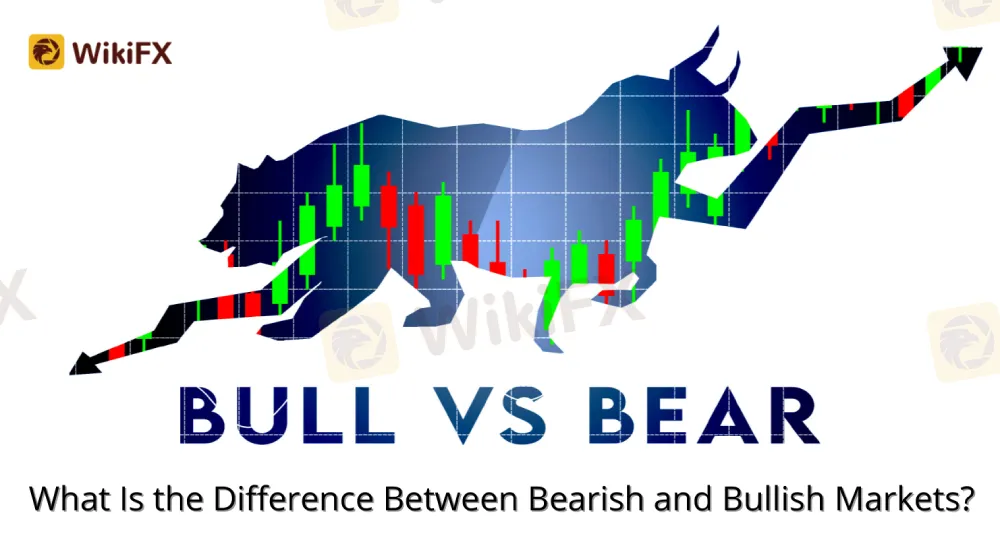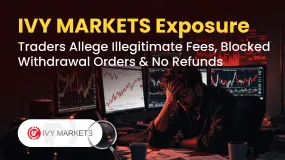Abstract:A fundamental benefit of forex trading is its ability to adapt to changing market conditions. Unlike securities, currency pairings may be profited from both purchasing and selling. This paves the way for a wide range of long and short-term strategic alternatives. Bullish or bearish, which one are you?
Price declines characterize a bear market; price rises characterize a bull market, plain and simple.

What Is a “Bull Market” Exactly?
Prices are rising or are expected to rise in a bull market on the financial markets. “Bull market” is a term that is most often linked with the stock market, although it may be used to any marketable asset.
The term “bull market” is normally reserved for long periods when asset prices rise substantially since they rise and fall practically continuously during the trade. Bull markets may endure for months, if not years.
In a bull market, what happens?
When the bulls rule the market, people want to invest their money; confidence is strong, and risk tolerance rises.
Because of this the stock market and other financial markets have seen increases in value, including currencies like the Australian and Canadian dollars, the New Zealand dollars, and the pesos of emerging market countries.
A drop in safe-haven currencies like the Japanese yen (JPY), the Swiss franc (CHF), and in certain cases, the US dollar may occur during a bull market.
In a bear market, when riskier assets are being sold off and safe-haven currencies are in demand, safe-haven currencies like the US dollar and the Japanese yen tend to increase.
How to Profit from a Bull Market
Investors who wish to profit from a bull market should purchase early to capitalize on increasing prices and sell after prices have peaked. Although it is difficult to predict when the bottom and peak will occur, most losses will be minor and transitory. Several significant tactics used by investors during the bull market eras are discussed below. However, since it is difficult to gauge the present status of the market, these tactics also include some degree of risk.
Why is it important to you?
One of the most important advantages of forex trading is the potential it provides traders in both bull and down markets. When one currency depreciates, the other gains, making it possible to benefit from both rising and falling markets when trading forex.
Bull and bear markets are crucial to monitor because they help predict current market movements. Being aware of market patterns may help you make better judgments about risk management and develop a better knowledge of when to enter and exit transactions.
In a bull market, traders want to join the market when prices rise to exit when they feel the market has hit its top.
What Exactly Is a Bear Market?
For a lengthy period, a market's prices decrease. An example of this is when stock prices have declined by at least 20% from their previous highs because of widespread negativity and a gloomy market mood.
If a stock or commodity decreases 20% or more over two months or longer, it is said to be in a bear market. Economic downturns, such as recessions, may lead to bear markets as well.
Bear markets may be compared with bull markets that are on the rise.
What Happens When There Is a Bear Market?
Bearish markets descend when investors sell riskier assets like equities and less liquid currencies like those from developing nations.
In a bear market, traders want to join the market while prices are dropping to purchase when they feel the market has hit its high.
In a bear market, when riskier assets are being sold off and safe-haven currencies are in demand, safe-haven currencies like the US dollar and the Japanese yen tend to increase.
Why is it important to you?
One of the most important advantages of forex trading is the potential it provides traders in both bull and down markets. When one currency depreciates, the other gains, making it possible to benefit from both rising and falling markets when trading forex.
Bull and bear markets are crucial to monitor because they help predict current market movements. Being aware of market patterns may help you make better judgments about risk management and develop a better knowledge of when to enter and exit transactions.
More WikiFX educational articles may be found at the following address: https://www.wikifx.com/en/education/education.html.












